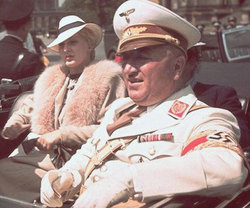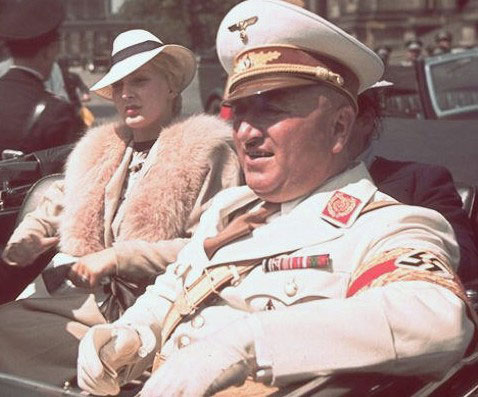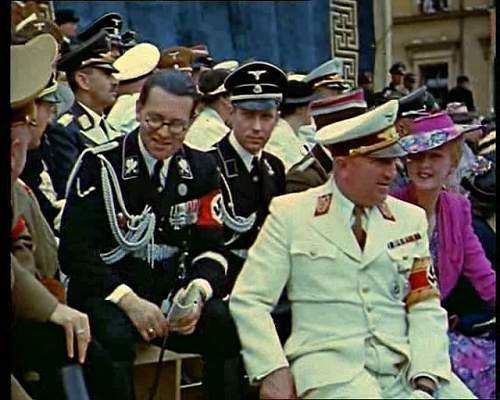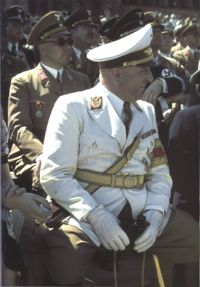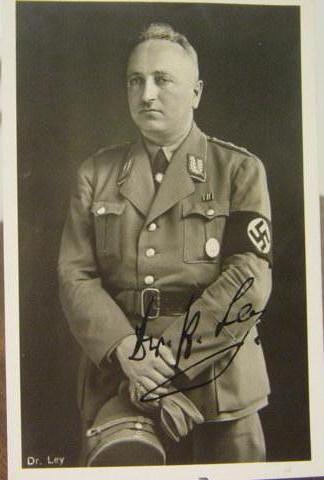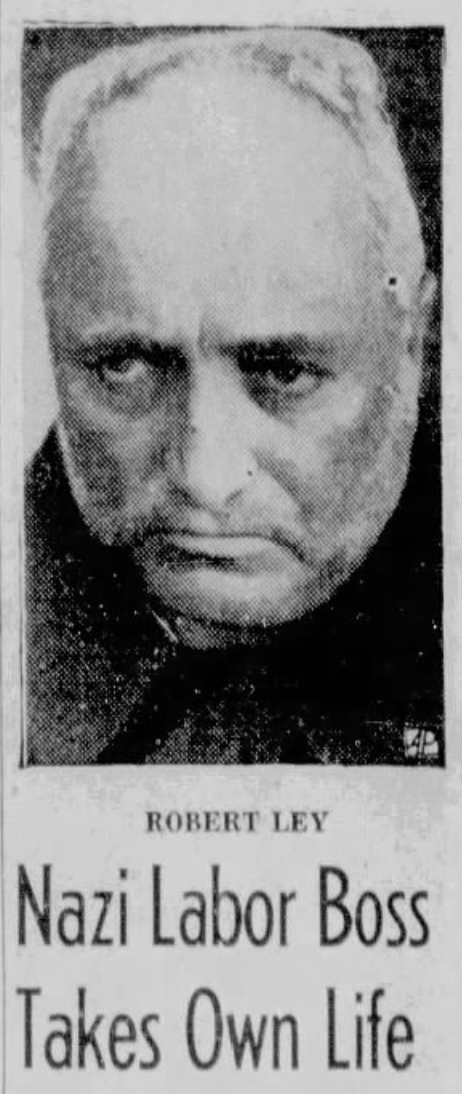Ley was completely oblivious to the existence of the Nazi party, until the trial of Adolf Hitler in 1924 . Dr. Ley became enamored with the ideology of the party and its appeal to middle class men and women. Ley had grown up a poor farmer, his father having squandered his dowry and causing his mother to raise the family on a meager farm. This gave him a true desire to excel at academics and make something for himself; it also gave him an intrinsic caring for underprivileged and burdened peoples. Therefore he approached the party leadership for admittance. The Nazi leaders gladly accepted him in order to have a true "academic in their midst."
Ley got his start in the party organization early. In the summer of 1925, Robert found himself in a position of power as Gauleiter in Rhineland-South. Ley inherited a poor situation: debt and back dues; took what little there was to work with and created a substantial party for his Gau. He increased membership and appealed to the workers of the Socialist and Communist Parties as much as he could. His work in the Rhine would later come to serve him well, as he received promotions and power.
difficult to attract employed workers; instead appealing to the unemployed workers and classless vagrants of the urban centers. This became a most vexing problem to Hitler, for he knew he must find some way to appeal to the employed workers for them to become party members.
Reichsleiter Ley fled to Berchtesgaden but was captured on May 16, 1945, and sent to trial at Nuremberg.
He committed suicide by hanging himself in his cell before the trial proper could begin;
"Robert Ley, the field marshal of the battle against labor, answered our indictment with suicide. Apparently he knew no better answer".
He had stated that he could not bear the accusation of being a war criminal.
Ley was completely oblivious to the existence of the Nazi party, until the trial of Adolf Hitler in 1924 . Dr. Ley became enamored with the ideology of the party and its appeal to middle class men and women. Ley had grown up a poor farmer, his father having squandered his dowry and causing his mother to raise the family on a meager farm. This gave him a true desire to excel at academics and make something for himself; it also gave him an intrinsic caring for underprivileged and burdened peoples. Therefore he approached the party leadership for admittance. The Nazi leaders gladly accepted him in order to have a true "academic in their midst."
Ley got his start in the party organization early. In the summer of 1925, Robert found himself in a position of power as Gauleiter in Rhineland-South. Ley inherited a poor situation: debt and back dues; took what little there was to work with and created a substantial party for his Gau. He increased membership and appealed to the workers of the Socialist and Communist Parties as much as he could. His work in the Rhine would later come to serve him well, as he received promotions and power.
difficult to attract employed workers; instead appealing to the unemployed workers and classless vagrants of the urban centers. This became a most vexing problem to Hitler, for he knew he must find some way to appeal to the employed workers for them to become party members.
Reichsleiter Ley fled to Berchtesgaden but was captured on May 16, 1945, and sent to trial at Nuremberg.
He committed suicide by hanging himself in his cell before the trial proper could begin;
"Robert Ley, the field marshal of the battle against labor, answered our indictment with suicide. Apparently he knew no better answer".
He had stated that he could not bear the accusation of being a war criminal.
Advertisement
Records on Ancestry
Sponsored by Ancestry
Advertisement
